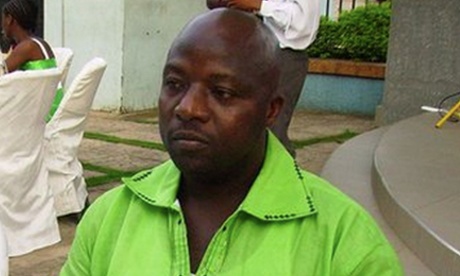- Thomas Duncan could be prosecuted for not declaring illness
- Officials: US outbreak ‘extraordinarily unlikely’

As the Ebola virus continues to ravage west Africa, a Dallas hospital is working furiously to treat the first patient ever to be diagnosed with the disease in the US.
In Europe, meanwhile, two aid workers who became infected while working in Africa were reported on Saturday to have recovered.
The charity Doctors Without Borders said it had received confirmation from the French health ministry that a nurse had survived the disease. She was evacuated from Liberia and cared for at a hospital near Paris. In Germany, the University Medical Centre Hamburg-Eppendorf said a Senegalese scientist who was infected in Sierra Leone had been discharged.
The World Health Organisation (WHO) says 382 health workers have been infected, and more than half have died.
The US patient, Thomas Eric Duncan, from Liberia, moved to the US to marry the mother of his 19-year-old son, according to the Dallas Morning News. He is now in isolation and his partner and family are under quarantine.
The Dallas County district attorney, Craig Watkins, told an NBC affiliate in Dallas on Friday his office was investigating whether to press charges against Duncan, after Liberian officials said earlier this week he would be prosecuted for lying on a questionnaire that asked if he had come in to contact with an infected individual. Authorities said he would not have been allowed to board the flight had he responded truthfully.
Days before departing for the US, Duncan helped take his landlord’s 19-year-old pregnant daughter to an Ebola treatment unit in Liberia’s capital, Monrovia. There wasn’t enough space at the hospital to treat the young woman and she was turned away. Duncan helped bring her back home, where she died hours later.
On Tuesday, Duncan was placed in isolation at the Texas Health Presbyterian hospital in Dallas. The quarantined family, which includes Duncan’s partner, her son and two nephews, were moved to an undisclosed location in a gated community, Judge Clay Jenkins, the county’s director of emergency management, said at a news conference on Friday night.
The family will remain at the gated community until 19 October, the end of the disease’s 21-day incubation period.
Until Friday, the family was forced to stay in the apartment where Duncan’s belongings remained. On Friday afternoon, a hazardous waste cleaning crew arrived to remove sweat-stained sheets and towels, among other materials.
Dr David Lakey, the Texas health commissioner, said on Friday officials had narrowed the list of Duncan’s potential or possible contacts to 50 people, the majority of whom are of very low concern. Among them are 10 high-risk individuals, including the quarantined family, who are being monitored more carefully. This requires checking their temperature for a fever twice daily.
On Friday, the WHO said Ebola had now killed more than 3,400 people across the affected west African countries – principally Guinea, Liberia, and Sierra Leone – out of 7,470 confirmed or suspected cases.
As part of the US response to the epidemic, more than 3,000 US military personnel have been tapped to go to west Africa. The troops will help set up field hospitals, labs and treatment centres and provide logistical support; they will not treat Ebola patients. There are currently more than 230 soldiers in the region, the majority stationed in Liberia.
The Defence Department said on Friday that it could send as many as 4,000 troops to the region.
“I want to make one thing real clear, that that’s a potential deployment,” the Pentagon press secretary, John Kirby, said. “That doesn’t mean it is going to get to that number.”
Kirby said the Pentagon was taking all precautionary measures to ensure the disease was not brought back to the US with the soldiers, including 21-day isolation for the highest-risk troops.
Senior White House officials said they hoped the US response to the Ebola crisis would galvanise the international community.
“The most important and effective thing we can do is control the epidemic at its source,” Lisa Monaco, President Barack Obama’s senior counter-terrorism adviser, said at a White House briefing.
Amid calls for a ban on travel from the affected west African countries, Monaco said that was not under consideration. She said isolating such countries could restrict essential aid from reaching victims of the disease, which could exacerbate the epidemic.
Monaco was joined by the director of the National Institute of Allergy and Infectious disease, Dr Anthony Fauci, who said an Ebola outbreak in the US was “unlikely”.
“Our healthcare infrastructure in the United States is well-equipped to stop Ebola in its tracks,” he said.
Across the country, health experts and officials have insisted that the US has the infrastructure and resources to combat the disease. The reason the disease is so deadly in west Africa is because of the poor health systems in place, they say.
“The biggest misconception is its fatality rate,” said Aileen Marty, professor of infectious diseases at Florida International University, answering questions during a Reddit AMA.
Marty spent a month treating Ebola patients with the WHO and Centres for Disease Control and Prevention in Nigeria.
“Whether a person survives or doesn’t is greatly dependent on when they present for treatment,” she said, “having appropriate treatment and where they get it.”
